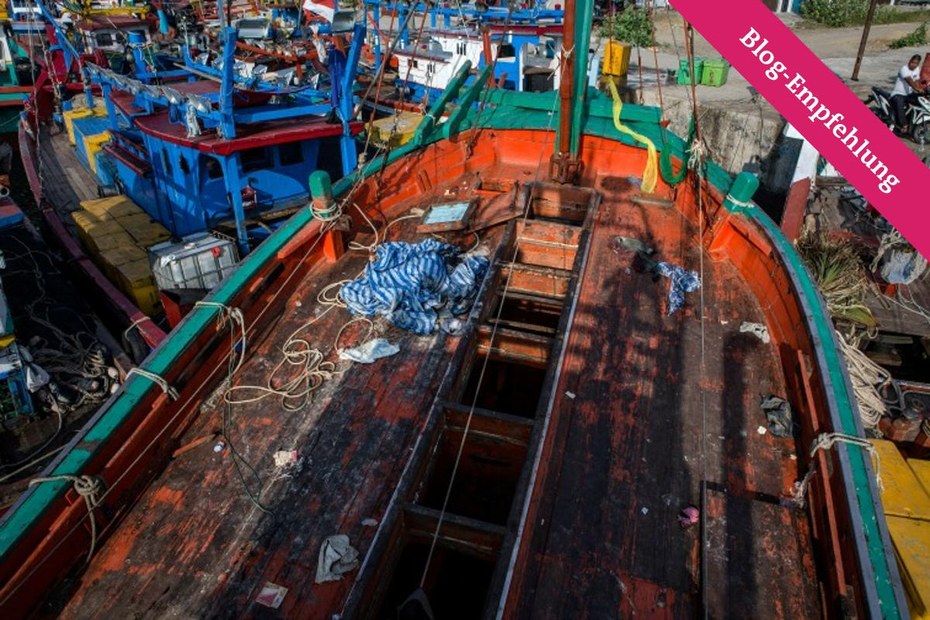Im Süden Thailands wurden in der vergangenen Woche Gräber mit den Überresten von auf Gummiplantagen zu Tode geschundenen Rohingya-Zwangsarbeitern gefunden, der Anlaß zu Polizei-Razzien gegen ein seit Jahren bekanntes und geduldetes Netzwerk aus Kidnappern, Erpressern, Menschenhändlern, Sklavenhaltern. Vermutlich floß das Schmiergeld an die Staatsgewalt nicht in der gewohnten Höhe.
°"We have testimony that places Thai officials in trafficking camps negotiating with traffickers while hundreds of people are held captive. Torture, killings, deprivations, and other abuses have all occurred with impunity. We’ve documented how Thai authorities have ‘rescued’ Rohingya asylum seekers and then sold or handed them to trafficking syndicates, who in turn tortured them.” ...
"Every single thing is under the control of the authorities,” he said. “The boat drivers, the brokers … always have to negotiate with authorities. Without bribing the security forces [military or police], it is not easy to leave. But people are handed over again to the traffickers in Thailand or [near the] Malaysia border. From there, they will be released by paying around 30 lakhs kyats [about £2,000]. People who cant afford to pay are sold out or killed.°
Die Konsequenz der Razzien in Thailand sind etwa 8000 Rohingya, die in der Straße von Malakka auf wenig seetüchtigen Booten bei knappem Wasser und Nahrung gefangen gehalten werden. Weil im Moment niemand in Thailand, Indonesien, Malaysia mit Sklavenhandel und -haltung in Zusammenhang gebracht werden will.
°"Boats seem to have stopped coming - but some are en route and some are waiting to off-load. Where they used to process people on land, for final payments, they are now doing this off-shore - so more people are being held off-shore. Now things have become so hot, there's nowhere for them to go"°
Vom indonesischen Militär wurden heute nacht vier Boote mit etwa 600 meist burmesischen Rohingya aufs Meer zurück geschleppt. Weil sie woandershin gewollt hätten, so ein Militärsprecher.
Die Rohingya sind eine Ethnie, die hauptsächlich in Myanmar, aber auch in Bangladesch, Thailand, Malaysia seit dem 15. Jhdt lebt, mutmaßlich sind sie niedergelassene Nachfahren arabischer Händler. Von den britischen Kolonialherren wurden ab Anfang des 19.Jhdts vermehrt Rohingya aus Bangladesch zur Ansiedlung in Rakhine und Kachin genötigt, um dort für die Briten auf Plantagen zu arbeiten. Ein weiterer Hintergrund burmesischer Ressentiments gegen Muslime entspringt dem Umstand, daß muslimische Inder im Auftrag und Schlepptau der Briten Handel und Bankwesen in Burma dominierten. Die Rohingya sind ebenfalls Muslime, haben eine eigene Sprache und Kultur, eine relativ dunkle Haut und werden in Myanmar seit den 1930er Jahren verfolgt, HRW und UN stuften sie schon vor x Jahren als die am meisten verfolgte Minderheit der Welt ein.
In einigen Medien thematisiert wurde ihre Verfolgung in den 1990er Jahren, als eine Volkszählung die runde Million Rohingya aus Myanmar ausbürgerte und zu Bengalis erklärte, sie wurden damit staaten- und vollkommen rechtlos. Seit dem Ende der Militärdiktatur wird ihre Verfolgung zusätzlich befeuert durch den selbsternannten 'Burmese Bin Laden', den buddhistischen Mönch Ashin Wirathu, dem Führer der muslimhassenden 969-Kampagne einer 'rassischen und religiösen Reinheit' und Initiator diverser Pogrome mit Hunderten von Toten und Vertreibungen von Hundertausenden Rohingya.
Aung San Suu Kyi, die Ikone der Gewaltlosigkeit, lächelt, winkt und schweigt, wenn sie nicht die Aktionen des Militärs ausdrücklich lobt, das den buddhistischen Mob ganz gern tagelang unbehelligt wüten läßt.
Und die Moral von der Geschicht?
Man achte bei Flucht und Menschenhandel unbedingt auf hinreichenden oder regelmäßigen Schmiergeldfluß. Weil Staaten nicht an ihren Bürgern und die Welt nicht an Staatenlosen interessiert ist.
Anschließender Blog, gleiches Thema: Schwimmende Särge
Staatenlosigkeit: Flucht
UNHCR Fragen und Antworten zu Staatenlosigkeit
Sieh die Welt Wir sind Rohingya
Guardian Rohingya migrants adrift in Andaman Sea – in pictures
Time 2014 The Rohingya, Burma's Forgotten Muslims by James Nachtwey
Journeyman Pictures (über Thailand) Rohingya Refugees Face Smugglers, Slavery & Bad Boats
Flucht: Erpressung: Sklaverei:
BBC Myanmar's migrants: The man buying back refugees from traffickers
AsiaOne: Slave trade booms in dark triangle
Guardian-Dossier Modern-day slavery in focus: Thailand
UNODC Migrant Smuggling in Asia
Al Jazeera People & Power - Outcast: Adrift with Burma's Rohingya
The Irrawaddy Trafficked Fishermen Arrive in Rangoon from Indonesia
Channel 4 (2013) Nightmare island where traffickers imprison Burma's Rohingya
The Atlantic Ransoms and Reunions: The Internet Huts of Burma
Human Rights Watch (14.5.2015) End Rohingya Boat Pushbacks
Human Rights at Sea Bangladeshis and Rohingya Boatpeople kidnapped by Human Trafficking Gangs to be sold into Slavery
UNHCR South-East Asia Irregular Maritime Movements Januar-März 2015
The Arakan Project
North Arakan: an open prison for the Rohingya in Burma
Forced labour still prevails: An overview of forced labour practices in North Arakan, Burma
Stateless Rohingya Children in Myanmar
Unregistered Rohingya refugees in Bangladesh: Crackdown, forced displacement and hunger
Fortify Rights
Myanmar: Authorities Complicit in Rohingya Trafficking, Smuggling
“Accountability and Transformation: Tier Rankings in the Fight against Human Trafficking”
Website, Video zur Arbeitsweise, weitere Publikationen
969-Bewegung:
arte Myanmar: Buddhisten hassen Rohingyas
The National The 'Burmese bin Laden' fomenting violence against Myanmar's Muslims
BBC Ashin Wirathu: Myanmar and its vitriolic monk und (News Channel) Myanmar's Extremist Monk
Economist Fears of a new religious strife
Vice Is Burma’s Anti-Muslim Violence Led by “Buddhist Neo-Nazis”?
PressTV The Racist Monk of Myanmar
International Business Times Myanmar Bans Time Magazine for Cover of 'Bin Laden Monk' Wirathu
Ethnische Säuberung in Rakhine 2012
Human Rights Watch All you can do is pray Satellitenaufnahmen der Zerstörung von Rohingya-Häusern, beispielhaft Kyaukpyu
Al Jazeera The Hidden Genocide
Geopolitik
Guardian 'Earth Inside' The dirty fossil fuel secret behind Burma's democratic fairytale
Asean und der Rest der Welt
Guardian How to solve the Asian migrant boats crisis – expert views
The Malaysian Insider (Charles Santiago) Refugee crisis is Asean’s great moral paralysis
Deutsche Welle Opinion: A foreseeable crisis
Philippine Daily Inquirer Wandering Nations
The Malaysian Insider Asean’s Rohingya left to die – Charles Santiago
Letzte Woche in den Medien:
Deutsche Welle Tödlicher Menschenhandel in Thailand
UNHCR calls for joint response in wake of "Rohingya mass grave" in Thailand
Guardian Thailand human trafficking death toll far greater than feared
Medien 12.5.2015:
BBC 'Thousands' of Rohingya and Bangladeshi migrants stranded at sea
Süddeutsche 8000 Menschen gefangen auf offenem Meer
Deutsche Welle Bootsflüchtlinge: "Weitere 8000 warten auf Rettung" Indonesien: Bootsflüchtlinge wieder ausgesetzt
International Business Times Myanmar Rohingya migrants face starving to death in stranded boat near Malaysia
Medien 13.5.2015
nd Aus dem Dschungel in die Seenot
The Sydney Morning Herald 'Some are already dead': Rohingya Muslims stranded at sea by Indonesia and Malaysia
Guardian Malaysia tells thousands of Rohingya refugees to 'go back to your country' und Rohingya Muslims brave death at sea to escape 'open-air prison' in Burma
New York Times The Rohingya Refugees, Adrift
Bangkok Post Region unites to deny Rohingya asylum
Telepolis Rohingya: Was bleibt, ist das offene Meer
Deutsche Welle Rohingya, die Heimatlosen
Myanmar Times Malaysian authorities to launch air search in response to distress calls
Zeit Online Gefangen auf dem Meer und (Fotos) Hunderte gerettet, Tausende noch auf dem Meer
Medien 14.5.2015
The Daily Beast ‘Pass the Trash’: The Tragic Truth About S.E. Asia's New Boat People
BenarNews Malaysia, Thailand Defend Decision to Stop More Migrants From Landing
The Straits Time (Singapur) Roots of migrant problem lie in colonialism
New York Times Migrants From Myanmar, Shunned by Malaysia, Are Spotted Adrift in Andaman Sea
The Nation (Thailand) A regional crisis with roots in Myanmar
New Zealand Herald Sea of blame, no haven for Asia's migrants
BBC Why has Rohingyas crisis blown up?
Khaosod English: Thai Govt: Ship of Abandoned Myanmar Migrants Will Not Land in Thailand
Guardian Migrant crisis grips south-east Asia as countries play human ping-pong
New York Times Migrants From Myanmar, Shunned by Malaysia, Are Spotted Adrift in Andaman Sea
BBC Stranded Myanmar Rohingya boat migrants desperate
Daily Star (Libanon) Migrant boat found in Thai waters: AFP reporter ->Asian Correspondent Thailand to prosecute Rohingya migrants; new boat found off Koh Lipe
The Australian Rohingya Crisis
ABC-News How Southeast Asia has created its own humanitarian crisis
Malay Mail Stop opressing Rohingya minority, says Malaysia to Myanmar
New York Times Crisis at Sea
AP/Yahoo Malaysia turns away 2 boats with more than 800 migrants
Medien 15.5.2015
Foreign Policy A People on the Brink
The Guardian view on the Rohingya refugee crisis: cruel and stupid
The Diplomat Asia’s Watery Graveyard for Asylum Seekers
Wall Street Journal Southeast Asia at Sea Over Migrant Crisis
The Conversation South east Asia’s migrant boat crisis is a global responsibility
New York Times Boat With Hundreds of Migrants From Myanmar Heads Farther Out to Sea
Myanmar Times Can Myanmar, and the region, continue to ignore the crisis?
SPON Drama in Asien: Bootsflüchtlinge berichten von qualvollen Tagen auf See
CNN Migrant boat re-enters Malaysian waters after refusing offer to land: Thai officials
Medien 16.5.2015
BBC Myanmar denies blame for migrant boat crisis
Deutsche Welle Migrants in 'maritime ping-pong' in Southeast Asia
The Malaysian Insider Najib’s statement on Rohingya a joke, says DAP
Hindustan Times Of smugglers and kingpins: Southeast Asia's big money trade in humans; brokers prey on Rohingyas' misery
Medien 17.5.2015
Guardian 'They hit us, with hammers, by knife': Rohingya migrants tell of horror at sea
Guardian Burma’s boatpeople ‘faced choice of annihilation or risking their lives at sea’
Dawn (Pakistan) In Asian seas, a migrant boat finds nowhere to land
AsiaOne (Malaysia) Journey through hell and beyond
Financial Times Southeast Asia tragedy unfolding in three acts
The Nation (Pakistan) Thailand finds 100 migrants on island, many still adrift
Bangkok Post Regional paralysis on Rohingya crisis
Medien 18.5.2015
Reuters No word on hundreds of Asian "boat people" pushed back to sea
Telepolis Der Horror von Malakka
Frankfurter Rundschau Inhumanes Pingpong
Foreign Policy Southeast Asia’s Migrant Crisis Explained, in Maps
Deutsche Welle Flüchtlingskrise in Südostasien: "Armselige Heuchelei und kalte Missachtung"
SPON Die Qualen der Rohingya: Erst Flüchtling, dann Sklave
Guardian 'We helped out of solidarity': Indonesian fishermen come to aid of boat migrants
The Sydney Morning Herald ASEAN urged to act swiftly on Rohingyas as aid resources 'limited'
NZZ Tödlicher Überlebenskampf auf hoher See
Zeit Online Der schleichende Völkermord an den Rohingya
The Daily Star Indonesian fishermen 'told not to save migrants'




Was ist Ihre Meinung?
Kommentare einblendenDiskutieren Sie mit.